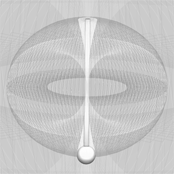



































conceptual inquiry regarding meaning » reality » world/worldhood
When we think about that which is experienced, we think about the phenomena of our world. The world is experienced. So, paradigmatically, we think of experienced in terms of experienced as world. But what is a world? Within this Project, a world is generally a domain of intelligibility—a system of significance. Or, as Richard Polt puts it in Heidegger: An Introduction, a "world is a system of purposes and meanings that organizes our activities and our identity, and within which entities can make sense to us" (54). So, just as experiencer and experienced are interdependently defined, so too are self and world. Self and world interpenetrate where significance occurs. Yet the central K-node question is more properly understood as being about, not just experienced as world, but experienced as such—one of three interdependent conditions making experience possible. So, to think about experienced as such, we must not only think about experienced in its own terms (as world), but also in terms of how it's interdependently related to experiencer and experiencing, which are paradigmatically self and dynamic, respectively—like so:
| K | experienced as such | |||
| experienced | ...as self | ...as world | ...as dynamic | |
From this formal structure we must consider How has experienced shown itself as self, world, and dynamic? Here is the outline of a preliminary attempt to understand this:
_experienced as self
As self, that which is experienced is presented solely to a particular experiencer. That which is experienced solely by particular experiencers is qualitative phenomena like pain. Of course, that such experiences are possible means the experiencer has the requisite apparatus for such an experience—like pain receptors—and all experiencers of a type have the same apparatus. But we can't feel each other's pain (unless you're Bill Clinton, apparently). So, experienced as self relies on what's peculiar to individual experiencers. Qualia are paradigmatic of this, but we can also imagine that more complex experiences can also be peculiar to individuals, given the peculiar character of the dispositional lens through which the presented phenomena are interpretted, as conditioned by the individual's unique background, history, habits, and so on.
_experienced as world
As world, that which is experienced is a salience landscape—a field of significance/relevance. It's that which is of concern that shows itself; it's what we care about that is experienced. A world captures our attention and keeps us involved in purposive activity. Moreover, worlds—at least human worlds—are generally shared by communities, so the pressure they exert is one to maintain social bonds. Briefly, in sum, there is more to reality than world, just as there is more to reality than what we experience, but we don't notice what we don't care about; we don't notice what's insignificant or irrelevant to us given our purposes. Worlds are regions of reality encompassed by concern.
_experienced as dynamic
As dynamic, that which is experienced is in flux. It's Plato's realm of becoming—a world of ever-changing phenomena. And perhaps it's also the world described by quantum mechanics. According to Heisenberg, for example, "all elemental particles are made of the same stuff—namely energy [...which] is not only the force which keeps everything in motion; it is also, like fire in Heraclitus's philosophy, the basic stuff of which the world is made" (in "From Plato to Max Planck" [Atlantic 204.5, 1959]). And, again, with experienced as dynamic, what we experience are facts, where fact means something done ("from Latin factum 'an event, occurrence, deed, achievement,' in Medieval Latin also 'state, condition, circumstance,' literally 'thing done'..., noun use of neuter of factus, past participle of facere 'to do' (from PIE root *dhe- 'to set, put'). Main modern sense of 'thing known to be true' is from 1630s, from notion of 'something that has actually occurred'"—etymonline.com).
Diagrammatically, experienced as such might be expressed as a cone. Experienced as self is the cone's apex, experienced as world is its base, and experienced as dynamic are the line segments connecting its apex and base. This cone and the experiencer cone interpenetrate. As such, they're inversely interdependent, yet as self and world, they are as part to whole, text to context.
